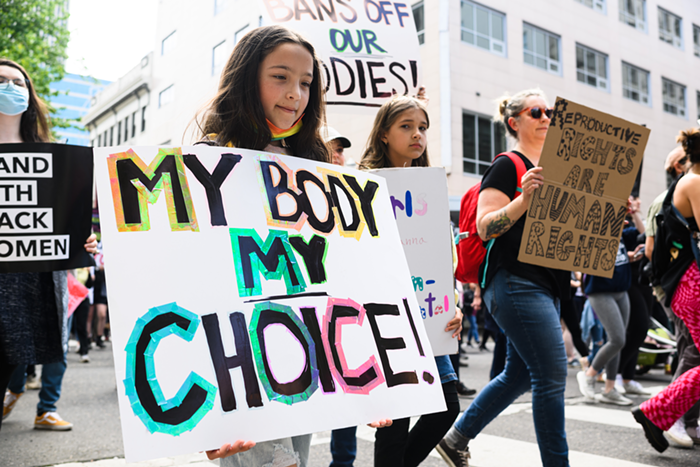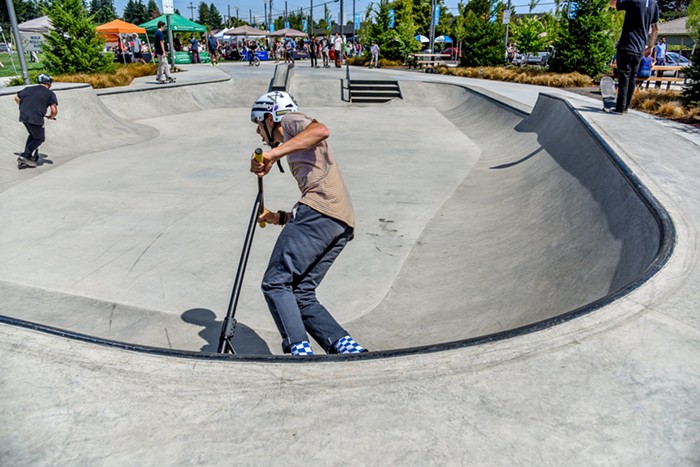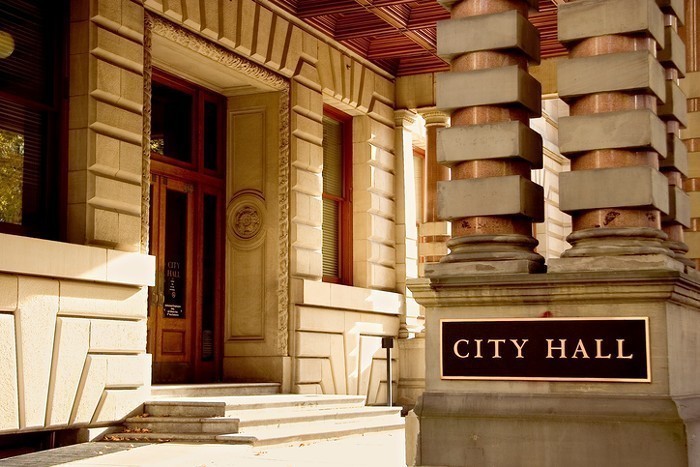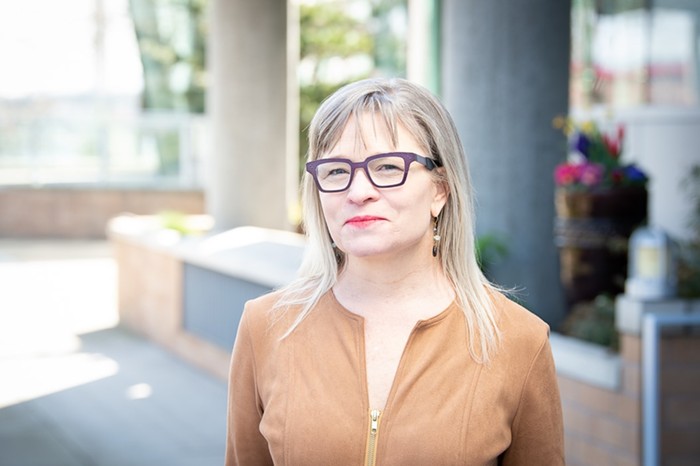
On Friday morning, the Supreme Court officially overturned Roe v Wade, ending nearly 50 years of national protection of abortion rights.
Abortion rights were adopted into Oregon state law in 2017, meaning that abortions are still legal in the state regardless of the Roe v Wade decision. However, 22 states have pre-existing laws that restrict abortion access, whether it be laws that preexist the creation of Roe v Wade, laws banning abortion after six weeks—before many people even know they are pregnant—or outright banning abortion through a trigger law that went into effect following the Supreme Court decision. There are also several more states that are considering limiting abortion following the federal decision.
As scholars and abortion providers have said for years, overturning Roe v Wade won’t suddenly stop abortions from happening, but rather restrict people’s access to safe abortions. While reproductive rights organizations have always been a critical resource, their services just became that much more essential. Here’s a non-comprehensive list of organizations that use donations to ensure people still have access to abortions and abortion-related services.
Funds in protected states that anticipate a surge of out-of-state travelers:
• Northwest Abortion Access Fund provides procedure, travel, and accommodation funding for people seeking an abortion in Washington, Oregon, Idaho, and Alaska. Importantly, that includes people who are traveling to the Northwest from other states for an abortion. Over the past several years, abortion providers in Oregon have been preparing for an influx of people from Idaho seeking abortions; Idaho will effectively ban all abortions in 30 days following the Supreme Court decision. You can read more about what the day-to-day operations of the Northwest Abortion Access Fund look like here.
• New Mexico Religious Coalition for Reproductive Choice is a faith-based abortion fund that provides financial and spiritual support to people in or traveling to New Mexico for abortion services. Unlike other faith-based pregnancy centers, the coalition is explicitly pro-choice. Four of the fives states bordering New Mexico have laws that either currently restrict abortion access or could soon restrict abortion rights. Abortion providers in New Mexico have been preparing for an influx of patients in the event that Roe v Wade was overturned.
• Our Justice assists people seeking abortion with financial assistance, lodging and transportation, and referrals to abortion doulas and aftercare resources in Minnesota. According to the organization’s donation page, the average cost of a first trimester abortion in Minnesota is around $695. Abortion is now illegal or soon to be illegal in both North Dakota and South Dakota, which border Minnesota.
• The Chicago Abortion Fund gives out $100 to $300 grants to help people pay for an abortion in Illinois. In the first three months of 2022, about 80 percent of the fund’s grantees came from out of state, including from Missouri and Kentucky where abortion is now, or soon to be, illegal.
• If you can’t decide where to donate, the National Network of Abortion Funds spilts donations between over 90 abortion service providers and funds that help people access abortions across the country. The network received a passing score from Charity Navigator in 2020.
Legal defense fund:
• The Repro Legal Defense Fund is a national bail and legal defense fund for people who are facing criminal charges for having a self-managed abortion, meaning using abortion pills or other methods to end a pregnancy outside of a clinic setting. Many of the new laws triggered by the Supreme Court decision criminalize having an abortion, which can bring on a mountain of legal fees.
This page may be updated.



















